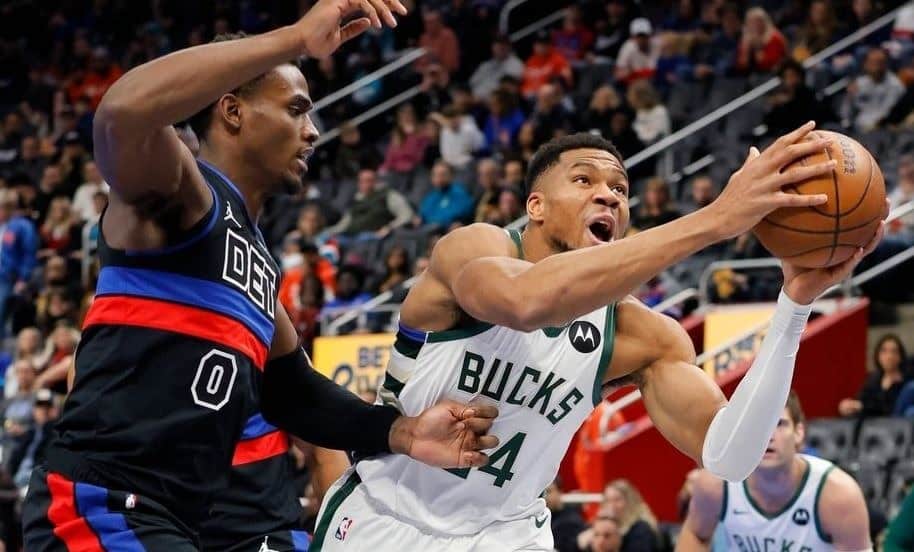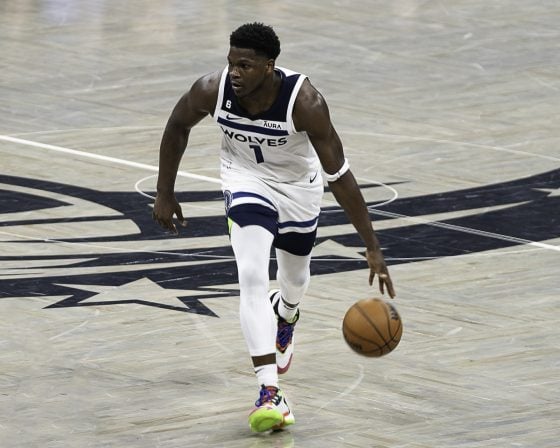CAMBRIDGE, Mass. — The Bridge program proved a fitting location for Jaylen Brown and the Boston Celtics to recommit to each other.
The Celtics continued to stress advancing as a basketball team toward a championship, pressure Brown accepted as a significantly larger share of the team’s cap. Off the court, he shouldered far more. Brown wants to bridge Boston’s wealth gap, an aspiration sign of how committed he is to a city he described as his home to NBC Sports Boston.
“I want to launch a project to bring Black Wall Street to Boston,” Brown said. “I want to attack the wealth disparity here. I think there are analytics that support that simulating the wealth gap could actually be something that could be for the betterment of the entire community. One, your investment in community, but two, also, the wealth disparity here, that nobody wants to talk about, is top-five in the US. It’s something that we can all improve on, it’s unsettling and I think through my platform, through influential partners, through selected leaders, government officials, a lot of who are in this room, that we can come together and create new jobs, new resources, new businesses, new ideas that could highlight minorities, but also stimulate the economy and the wealth gap at the same time.”
At MIT, Brown’s Bridge program again targeted education, which he previously called the center of social satisfaction in this country, and hosted his extension press conference. That directed most of the session’s conversation toward those off-court pursuits. In referring to Black Wall Street, Brown named his project after efforts in the Greenwood District of Tulsa, Oklahoma in the early decades of the 1900s to build a self-sufficient business district within the confines of one of the country’s worst Jim Crow segregation systems.
Black Wall Street included lodging, real estate, grocery stores, banks, libraries, churches, funeral homes, barbershops and more. In a 1921 riot becoming more known across the US in recent years after nearly one century of devious obscurity, white residents destroyed over 30 blocks of homes, businesses, killed hundreds, based on varying estimates, and burned over 1,000 houses and nearly 200 businesses. The damage amounted to over $30-million in modern value, stemming from resentment over the growing district and alleged assault by a Black shoeshiner on a white elevator attendant. Many residents fled the state.
Hope for Black capitalism laid in ruin, undermined by white supremacy in a theme of that century. Those remaining tried to rebuild through the end of Jim Crow. Brown’s allusions to Black Wall Street, wealth disparity and de-facto segregation in Boston reflect both his commitment and approach to affecting change in the city — entrepreneurship.
His clothing line 7UICE originally aimed to redistribute money from people who could afford his expensive clothes toward his foundation’s efforts — including Bridge. Brown targeted education as an early way Black children can improve their social standing, with divestment away from it contributing to diminished aspirations, Boston’s public schools faltering physically and in performance.
Both Brown and the Celtics emphasized uplifting Black businesses and providing education opportunities, Brown describing his own challenges in advancing his own due to built-in restrictions against business development within the city notorious for its racial past. Previously, he told a story about how a teacher in Georgia predicted he was bound for jail.
“I think that could be a mix of commercial entities, real estate, residential, as well,” Brown said last week. “Boston could be a fully-integrated, self-sufficient hub, attracting minorities and stimulating the wealth gap. I think Boston could be a pilot, not just for wealth disparity here in the US, but also around the world. You asked me what I wanted to do, or what I want to do? One, I want to attack that wealth gap here in Boston, create a project, also I want to stimulate the overall economy, and I want to bring Black Wall Street here to Boston.”
Data from the 2020 US Census ranked Boston as eighth most unequal according to the Gini index of income inequality among cities with populations over 250,000, with the largest difference between the top quartile and bottom quartile (35%). Mayor Michelle Wu, in her campaign, and others cited a significantly greater disparity between household wealth between white and Black households in Boston. That’s why Brown’s Bridge program focused specifically on connecting minority high school students with leaders in STEM education, health and wellness resources, along with learning emotional and financial literacy.
Black Owned Boston lists over 1,600 Black-owned businesses and hosts a showcase in the Seaport each year. Challenges remain despite the help initiatives like PPP loans provided, particularly on that topic of financing. City contracts provide a roadblock to other businesses, as does the exploding cost of rent in the city that rivals any other in the US.
Finding a permanent home for his 7UICE brand is likely what Brown alluded to, in part, when he described the difficulties he faced in navigating the Boston business sphere. It’s worth wondering how much representation Black businesses will receive in the $1.6-billion Fenway Corners project, which will undoubtedly further drive up the cost of living in the neighborhood bordering Boston’s predominantly Black neighborhoods to the south.
“There’s not a lot of room for people of color, Black entrepreneurs, to come in and start a business,” Brown told the New York Times earlier this year. “I think that my experience there has been not as fluid as I thought it would be. Even being an athlete, you would think that you’ve got a certain amount of influence to be able to have experiences, to be able to have some things that doors open a little bit easier. But even with me being who I am, trying to start a business, trying to buy a house, trying to do certain things, you run into some adversity.”
US representative Ayanna Pressley, who represents Boston, reached out to Brown in the aftermath of his comments online. Celtics governor Wyc Grousbeck committed to supporting Brown’s causes and more off-court initiatives, declaring Boston could double or triple its off-court efforts. The issue Brown’s targeting is one of the most challenging of this time, and one at the heart of national policy debate. Brown told CBS his goal will take several years of work and partnerships — his expression remaining stoic.
Brown nodded hearing members of the Celtics brass speak up and support his efforts, and grinned as the children in attendance applauded. They acknowledged the ultimate goal on the floor remains central, but an optimistic partnership emerged from over one month of negotiations. While new assistant Sam Cassell stressed last month his players not try to put the world’s problems on their shoulders, the C’s will try to help him carry as much as he can bear.
“The way my brain works,” Brown said. “I made sure when (the contract) was finalized, the first thing that came to mind was like, ‘dang, look at all you can do with it now.’ How much you can invest into your community. What you can build with it. How many lives you can touch and what you can do in real time. Those resources that you have, money isn’t everything, but the ability to have resources to put stuff together, to build things, to change things, to have influence, all of that stuff is more inspirational to me than anything.”
“Now, the pressure is, I have to build something fitting, something monumental to reach up, to make sense for that astronomical number, but I’m excited to do so.”






